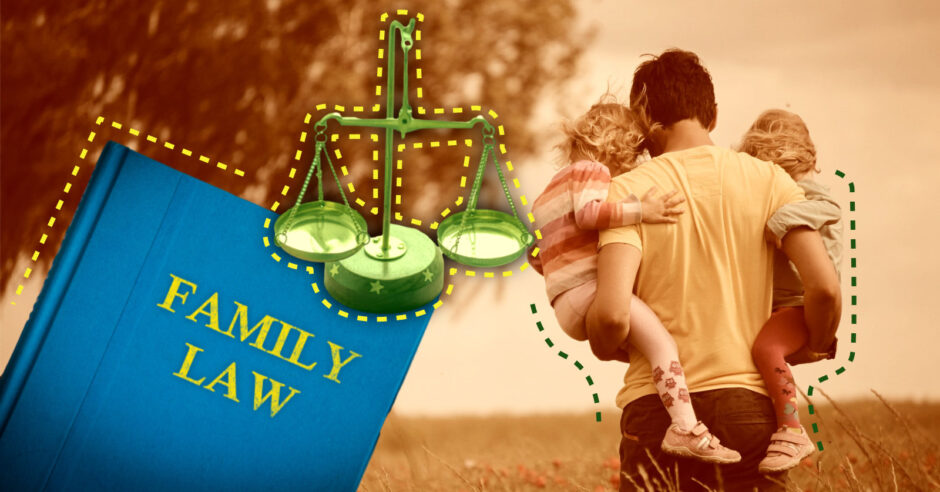Conditional Order/Decree Nisi in Divorce

Obtaining a conditional order is a crucial stage of the divorce process in England and Wales. You will need a conditional order before you can apply for a final order to legally end your marriage. In this guide, we explain what a conditional order is in divorce proceedings and the process you will need to follow to […]
Final Order/Decree Absolute in Divorce

A final order is the last stage of the divorce process in England and Wales. In this guide, we explain what a final order is and the steps you will need to follow to obtain one to legally bring your marriage to an end. This guidance equally applies to anyone looking to dissolve their civil partnership. […]
Divorce Process Step By Step

No-fault divorce rules were introduced in the UK in 2022 to help make the divorce process more straightforward. Under this system, divorcing couples no longer have to cite grounds for divorce or attribute blame to be able to end their marriage. But the divorce process can still be both emotionally and financially demanding, particularly if the relationship […]
Child Custody Rights & Making Child Arrangements

In this guide for parents, we explain the law on child custody and how to deal with child arrangements and residency issues. We also answer frequently asked questions to help you understand your child custody rights. What is child custody? Child custody, or residency, is dealt with by the family courts under child arrangements orders. […]
What are Parental Rights for Fathers?

Parental rights for fathers are determined largely by whether the individual has ‘parental responsibility’. Parental responsibility is not always an automatic right for fathers, and without it, a father’s legal rights in relation a child may be limited. What is parental responsibility? With parental responsibility, you can make decisions about the child’s upbringing and care, […]
16 Year Old Rights Against Parents
Turning 16 means you attain some new rights against your parents and that you now get to have a say in some decisions that directly affect you. Given your age, the courts will also typically take into account your wishes and feelings when it comes to certain issues, such as child contact arrangements. You are, however, […]
Divorce Settlement FAQs
A divorce settlement is the part of the divorce process when assets are divided and any other financial arrangements are decided. In this guide, we answer frequently asked questions about financial settlements in divorce proceedings. Even in the most amicable scenarios, where agreement has already been reached between former spouses or civil partners on mutually […]
Form E Divorce Financial Statements: Everything You Need to Know
Courts rely on financial disclosures when determining financial remedies in divorce and dissolution of civil partnership proceedings. This guide to the Form E explains what Form E is, what information it requires parties to disclose, and the potential consequences of lying on Form E, including the consequences of lying about cohabiting on Form E. What […]
Form D81 & Consent Orders
Form D81 is used to provide information about divorcing parties’ financial situation in support of an application for a consent order. If you and your former spouse are able to agree on how to split your money and assets on divorce or civil partnership dissolution, you can avoid a contested hearing and the acrimony and […]
Separated Parents’ Holiday Rights
If you’re a separated parent, do you know if you can you take your child on holiday and do you need your ex’s consent? What does the law say about separated parents’ holiday rights in the UK? In the UK, all mothers and many fathers have legal rights and responsibilities as a parent. These rights […]
What is a Decree Absolute & Do You Need One?
Getting divorced can be a stressful time for separated spouses, not least because the legal process for filing for divorce can often be acrimonious, typically requiring one party to attribute some form of blame against the other to establish grounds for divorce. However, with the Divorce, Dissolution and Separation Act (DDSA) 2020 is coming into […]
No Fault Divorce: Where Are We Now?
Getting a divorce can be an extremely difficult and emotionally challenging time for the former couple. Yet even where both ex-partners are in agreement that divorce is the only option, the law at present in England and Wales does not allow a ‘no-fault divorce’. Under current rules, to legally divorce, blame must be attributed to […]
How Does Divorce Affect Your Pension?
When it comes to divorce or civil partnership dissolution, all financial assets have to be put out in the open, and this includes all pensions you and your ex-partner have built up. Pensions are a valuable asset, particularly for older people who have amassed sizeable funds, so it will be vital to understand how they will […]
How to Get a Non Molestation Order
For victims of domestic abuse, a non molestation order can be used to prevent your abuser from harassing you further. In this article, we explain how to apply to court to get a non molestation order and what to do if you need to make an emergency application. What is a non molestation order? A […]
What is Family Law?
Family law is an area of law that relates to family matters and involves a host of authorities, agencies and groups which participate in or influence the outcome of private disputes or social decisions involving family law. Such a view of family law may be regarded as assisting the understanding of the context in which […]
What is Divorce?
The following guide summarises the current process for filing for divorce in England and Wales. Divorce defined Divorce is the formal process by which a marriage is officially brought to an end by the court. The party to the marriage who files for divorce is known as the petitioner, while the respondent is the individual […]
What are the Different Types of Family Trust?
A family trust is a legal mechanism by which an individual can financially cater for their loved ones, essentially controlling how their family is to inherit their legacy, either during that individual’s own lifetime or upon their death. But what are the different types of family trust? Below we consider family trusts in more detail, […]
Family Trusts Explained
The family trust can be an effective way of making financial provision for your loved ones, both during your lifetime and after you die. This type of trust can be used for all sorts of different reasons, from helping to fund a child’s education to mitigating the cost of care home fees or inheritance tax. […]
Does a Family Trust Protect Assets?
Family trusts are commonly used for a number of reasons, not least to help protect valued assets, such as the family home or hard-earned investments, for both existing and future generations. But does a family trust protect assets effectively? What exactly are the pros and cons of a family trust within the context of asset […]
Family Trust – What is it?
The following guide to family trusts considers what these are, how they work and when you might consider setting one up, not least in the context of financial planning for the future, both during your lifetime and after you die. Family Trust – what is it and why would I need one? A family trust […]